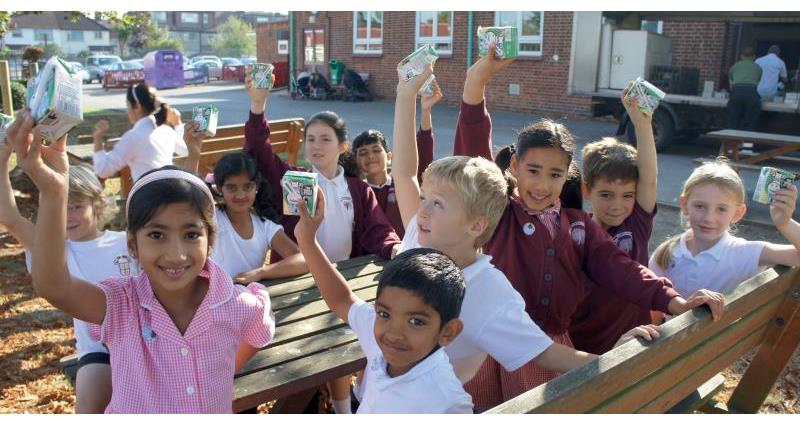The scheme, which is in its second year, aims to widen the number of eligible products, educate children better on healthy diets and target funds more effectively by merging the two previous schemes for dairy and fruit and vegetables schemes.
This comes at a time when there is a decline in consumption of fruit, vegetables and milk across Europe and at the same time child obesity is rising. Almost a third of children in the EU aged 6 - 9 were considered overweight or obese in 2010, up from a quarter in 2008.
During the 2016 - 2017 school yer, more than 12.2 million youngsters in 79,000 schools took part in the fruit and vegetable scheme and around 18 million took part in the EU milk scheme. This represents more than 74,000 tonnes of fruit and vegetables and 285,000 tonnes of dairy products.
How is the funding split and how much does the UK receive?
Of the €250million to be spent on the scheme, roughly €145million will be allocated for fruit and vegetables and just over €105m for dairy products.
All 28 member states draw down funding for the school milk scheme (with the biggest recipients below) and both the UK and Sweden opt out of the school fruit and veg scheme, arguing it's better run at a national scale.
Country | School Milk Allocation (€) |
France | 17.12 million |
Poland | 10.84 million |
Romania | 10.74 million |
Germany | 10.55 million |
Sweden | 9.18 million |
Italy | 8.92 million |
Spain | 7.10 million |
UK | 4.93 million |
Distribution of the aid is based on the share of children aged between 6 and 10, the degree of development in a given area as well as past funding levels.
A new part of the scheme is that around 15% of aid allocations should be set aside for educational measures to promote healthy eating habits amongst children, fight food waste organise farm visits and distribute local specialities such as honey, olive oil and olives, while 10% should cover related costs. Priority must be given to local fresh products over processed food.
Member States are allowed to distribute soup, fruit compotes, juice, yoghurts and cheese (in addition to fresh fruit and vegetables and milk).
Verity Richards, NFU Dairy Adviser said: “Post-Brexit the NFU is committed to ensuring milk and other dairy products remain accessible and affordable to schools to help promote a healthy diet, support the UK dairy industry and develop future consumption trends.
Defra has committed to matching funding for school milk up until 2020 but longer-term prospects remain unclear.
The NFU has recently conducted a school survey to determine current uptake of the EU scheme, the challenges associated with getting milk into schools and the demand for a domestic scheme post 2020.
Almost 95% of schools who responded to the survey currently provide milk to pupils with every single participating school saying they would like to see funding for school milk continued once we have left the EU.
The results of the survey will help strengthen the NFU’s response to future consultation on school milk and shape discussion on what a domestic school milk scheme should look like.”
